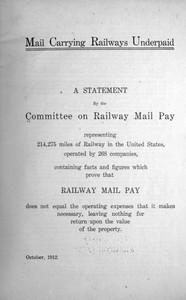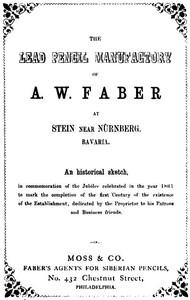Read this ebook for free! No credit card needed, absolutely nothing to pay.
Words: 19244 in 6 pages
This is an ebook sharing website. You can read the uploaded ebooks for free here. No credit cards needed, nothing to pay. If you want to own a digital copy of the ebook, or want to read offline with your favorite ebook-reader, then you can choose to buy and download the ebook.


: Mail Carrying Railways Underpaid by Committee On Railway Mail Pay - Railway mail service United States
THE GALAXY.
THE ENGLISH PEERAGE.
Successive governments give as large a share of patronage to the peers and baronets, and their kinsfolk, as they reasonably can; while the Premier is only too glad to select men of rank as his colleagues in the Cabinet, if they are only possessed of decent abilities, and will work--for a minister must be a hard worker in these days. Thus, Mr. Gladstone's administration, the first which was ever designated as "Radical," contained a large proportion of the aristocratic element in its ranks, though it was even made a charge against Mr. Gladstone by conservative and pseudo-liberal papers, that he unjustly deprived the peerage of its due representation in the Cabinet.
As a matter of fact, when the Cabinet resigned it consisted of sixteen members. Of these, eight were peers or sons of peers. Of the remaining thirty-six Parliamentary members of the administration, fourteen were peers or sons of peers. Mr. Disraeli's Cabinet numbers but twelve ministers. Of these six are peers, another is heir presumptive to a dukedom; while an eighth is a baronet; and of the remaining members of the administration, nineteen out of thirty-eight are peers, baronets, or sons of peers. In the army and navy, in the diplomatic service, the peerage equally secures its full share of prizes; and even in the legal profession it is far from being a disadvantage to a young barrister that his name figures in the pages of Burke. In the Church a large proportion of the best livings are held by members of the same privileged class, and even the Stock Exchange lately showed itself eager to confer such honors as were in its gift on a duke's son, who had been courageous enough to "go into trade."
The British aristocracy is still, therefore, "a fact," if a favorite term of Mr. Carlyle's may be permitted in such a connexion, as it probably may, for the author of "The French Revolution" has himself been one of the latest eulogists of the governing families of England, and perhaps a few notes on the origin and history of some of the principal houses may not be unacceptable to American readers.
Rentals of leased properties, all United States railways, for the same year 3,881,409
Plainly, the Postmaster-General's proposal is equivalent to an assertion that the railways would make a fair profit if they were enabled to collect the sum of 5,585,568 in addition to their operating expenses and taxes, but the figures given by the Interstate Commerce Commission show that this would be less than one-third of the sum necessary to meet interest charges which must be paid in order to prevent foreclosures of mortgages and, if bond interest could be ignored, is much less than the rentals that must be paid if the existing systems are not to be broken up. And, of course, it would allow nothing whatever for legitimate demands upon income for dividends, permanent improvements or surplus.
It is unnecessary to dwell upon the consequences of such a theory of "compensation" to railroad credit and to the public interest in efficient transportation service, to say nothing of the consequences to owners of railroad stock and bonds. Such a theory is not a theory of compensation--it is a theory of oppression and of destruction.
The fact that the Postmaster-General has found it necessary to justify his attack upon the present basis of railway mail pay by a theory so unprecedented and so unwarranted in principle and in law, raises a strong presumption against all his opinions and conclusions upon this subject.
It cannot be too strongly emphasized that the railway mail pay at present is insufficient to pay even its proper share of operating cost and taxes and does not produce any return upon the property. This will be demonstrated by any fair inquiry, as will now be shown. Reports submitted to the Postmaster-General by railways operating 2,411 mail routes, with a total length of 178,710 miles, showed that their gross receipts, per car-foot mile, from services rendered on passenger trains during November, 1909, were as follows:
From mail 3.23 mills From other services 4.35 mills
Thus it appears that the space on passenger trains required for the mails is proportionately less than three-quarters as productive as that devoted to passengers, express, milk, excess baggage, etc., etc. As it is the general belief of railway managers, whose conclusion in this respect has rarely if ever been challenged, that the passenger train services, as a whole, do not produce revenues sufficient to meet their fair proportion of the operating costs and the necessary return upon investment, and therefore are not reasonably compensatory, it is evident that the mail service, the pay for which is more than twenty-five per cent. below the average for the other services rendered on the same trains, must bring in much less than reasonable compensation. Certainly railroad revenues as a whole could not be reduced twenty-five per cent. without destroying all return upon the property. If so, it must be true that there can be no compensation in a rate of mail pay that is twenty-five per cent. less than the rate of pay for passenger traffic which, as above shown, is relatively unprofitable.
Free books android app tbrJar TBR JAR Read Free books online gutenberg
More posts by @FreeBooks


: Hääilta: Huvinäytelmä yhdessä näytöksessä by Nansen Peter - Danish drama Translations into Finnish







